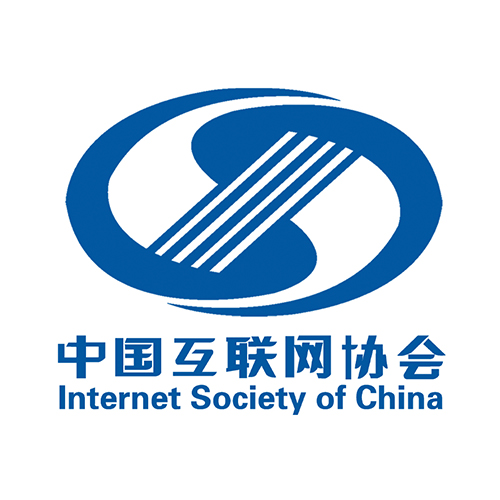AI for Digital Inclusive Development
Internet Society of China / Estrategia Latino-Americana de Inteligencia Artificial
Session 185

The Role of New Technology in Fueling Accessible Innovation and Promoting Inclusive Environments / Bridging Knowledge Gaps - An AI Governance Tool for Global Information Societies
As algorithmic systems mediate ever more dimensions of daily life, interpretative asymmetries have emerged between technology creators and users—an issue that disproportionately affects marginalized and vulnerable populations in the Global South and around the world. Meanwhile, AI-driven innovations hold enormous promise for narrowing digital divides and accelerating the UN Sustainable Development Goals.
This joint session will:
1. Bridge Hermeneutic & Development Paradigms
Demonstrate how ELA-IA's proposed AI Risk 'Nutrition' Label functions as a digital governance instrument to reduce interpretative asymmetry, especially for end users with limited technical or algorithmic literacy, by translating complex AI risk factors into an intuitive, food‑label‑style format.
2. Share Best Practices
Present real‑world case studies—from ZTE’s SDG acceleration and HONOR’s AI subtitles for Hearing Impairments to China Mobile’s inclusive services—that illustrate how to design and deploy AI in ways that are both accessible and transparent.
3. Co‑Create Actionable Strategies
Explore integration of ISC’s standards expertise with ELA‑IA’s AI Risk Label framework to develop clear guidance for regulators, platforms, and civil‑society on labeling thresholds, and user education.
4. Foster South‑South Collaboration
Highlight the importance of shared hermeneutical resources, collective interpretation repositories, and cross‑regional partnerships in building a more inclusive information society.
Format:
– Mr. Dai Wei (ISC): Remote opening remarks
– Mr. Wang Xinhui (ZTE): “Accelerating SDGs with an AI‑Powered Paradigm”
– Mr. Liu Xiaojun (HONOR): “AI Subtitles for Hearing Impairments”
– Ms. Wang Ce (China Mobile): “AI for Elderly & Children’s Inclusive Services”
– Ms. Flora Santana (ELA-IA): "ELA‑IA’s AI Governance Proposed Tool: AI Risk Label framework"
– Ms. Cristina Ueche, General Coordinator of Digital Transformation, Brazilian government's Ministry of Science, Technology and Innovation (CGTR/DECTI/SETAD): "ELA‑IA’s AI Governance Proposed Tool: AI Risk Label framework"
– Q&A



.jpg?maxwidth=250)

-
 C1. The role of governments and all stakeholders in the promotion of ICTs for development
C1. The role of governments and all stakeholders in the promotion of ICTs for development
-
 C3. Access to information and knowledge
C3. Access to information and knowledge
-
 C4. Capacity building
C4. Capacity building
-
 C5. Building confidence and security in use of ICTs
C5. Building confidence and security in use of ICTs
-
 C6. Enabling environment
C6. Enabling environment
-
 C10. Ethical dimensions of the Information Society
C10. Ethical dimensions of the Information Society
Our goal is to present a tool linked to the role of governments, access information and knowledge, capacity building, building confidence, enabling environments and ethical dimensions. Enhancing digital literacy empowers users who rely on technology without understanding the associated risks. That is why our proposal approaches action lines C1, C3, C4, C5, C6 and C10.
-
 Goal 3: Ensure healthy lives and promote well-being for all
Goal 3: Ensure healthy lives and promote well-being for all
-
 Goal 12: Ensure sustainable consumption and production patterns
Goal 12: Ensure sustainable consumption and production patterns
-
 Goal 16: Promote just, peaceful and inclusive societies
Goal 16: Promote just, peaceful and inclusive societies
We are focusing on the safety and strength of our institutions, ensuring well-being and sustainable consumption. AI can be used to erode people's confidence in institutions, to promote pathological consumption and unhealthy behaviours. It also exploits vulnerabilities of people's minds and the coordination capacity to protect our institutions. In this regard, our session aims to regulate, not mitigate the impact, but to anticipate and avoid a negative impact before it damages communities, societies and individuals.
- Objective 2: Expand inclusion in and benefits from the digital economy for all
- Objective 3: Foster an inclusive, open, safe and secure digital space that respects, protects and promotes human rights
- Objective 5: Enhance international governance of artificial intelligence for the benefit of humanity
https://ela-ia.org/
https://www.isc.org.cn/
https://www.linkedin.com/company/ela-ia/
https://www.instagram.com/estrategia.latinoamericana.ia
